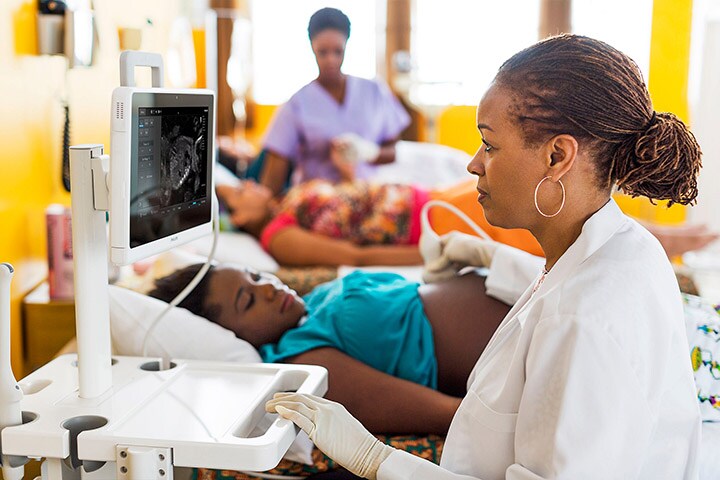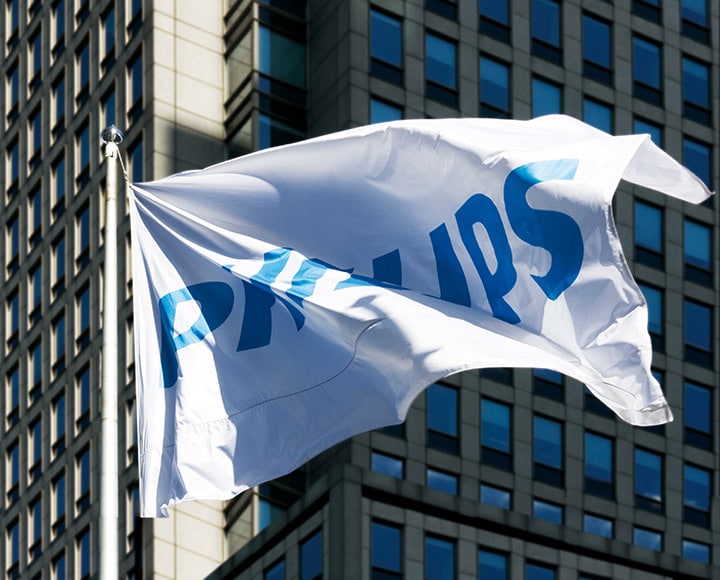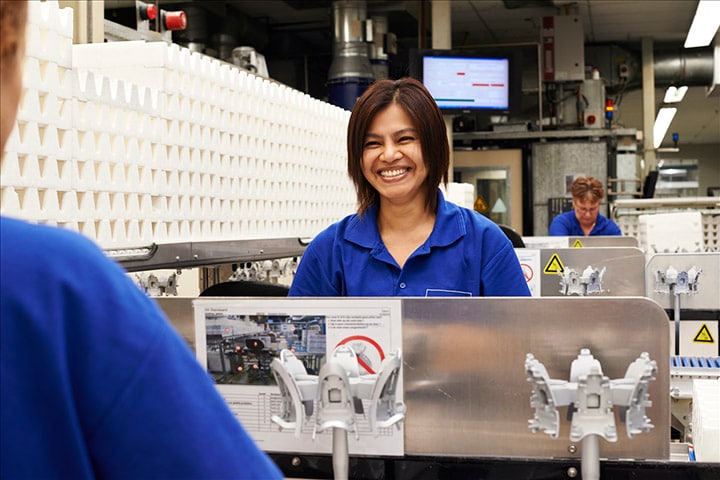Purpose in action – Why ESG matters to Philips
Aug 25, 2022 - Reading time 5-7 minutes
At Philips, our purpose to improve people’s health and well-being through meaningful innovation is at the heart of everything we do. Never has this central principle been more important than it is now.

"I firmly believe that private-sector companies like ours – with the innovation power and ability to scale solutions – have a vital responsibility and role to play in collaborating with private and public organizations in society, and with our partners across our supply chain, to address global challenges," says Marnix van Ginneken, Philips’ Chief ESG & Legal Officer.
Indeed, there is a growing demand from stakeholders for companies to take greater responsibility. Many investors are looking for a return beyond dividends, expecting companies they invest in to have a lasting positive impact on society and the planet. Customers are asking companies like Philips to help them tackle their sustainability challenges. Consumers expect companies to take responsibility for their environmental and social impact. Regulators are starting to define standards for ESG reporting. And, last but not least, employees are looking for purpose in their work.
So, what does it mean to be a purpose-led company?
Purpose drives everything
At its most fundamental, purpose is the very reason why an organization exists. It functions as a North Star, focusing and aligning all endeavors, and shaping every aspect of the business. However, purpose can quickly ring hollow if organizations fail to consider their true impact on society – and act accordingly, turning words into deeds, policy into action.

Being a purpose-led company means taking into account the interests of a broad set of stakeholders, as well as the effect our actions have on the environment and societies we operate in. This is key to generating long-term value:
This approach resonates widely: no fewer than 74% of G20 citizens want human well-being and ecological protection prioritized over profit [5]. And 64% of US adults say a company's primary purpose should be “making the world a better place” [6].
For a company like Philips, this means developing our strategy in the context of ‘the bigger picture’ and making a commitment that extends well beyond shareholder value alone. And that means taking an integrated view of value across all stakeholders in every decision we make. Which brings us to ESG.

Backing up purpose with commitment – why ESG matters
Philips’ purpose statement starts by expressing our belief that technological innovation can drive better outcomes and improve people’s health. We do this by making healthcare more accessible, personal, connected, resilient and sustainable.
The second part captures our commitment to our people and being the best place to work, by providing opportunities for learning and development and promoting an inclusive workplace.
The third and final part focuses on delivering superior, long-term value to our customers and shareholders, while acting responsibly towards our planet and society, in partnership with our stakeholders. Let’s unpack what all of this means.
“For Philips, innovation is how we ensure our continued relevance in both the short and long term: by devising solutions to customers’ and consumers’ needs,” explains Marnix van Ginneken. “Acting responsibly safeguards our license to operate. And embedding sustainability in the way we do business is critical to ensuring our long-term impact.”

Building on our strong heritage in environmental and social responsibility, we have reinforced our purpose by adopting a fully integrated approach to doing business responsibly and sustainably. This approach covers the Environmental, Social and Governance (ESG) dimensions that, taken together, define a company’s overall societal impact. It includes ambitious ESG goals for 2025.

Our environmental responsibility strategy focuses on material topics driving climate action (UN SDG 13), such as the sustainable use of energy, reducing emissions, and operating carbon-neutral. We do this by expanding renewable energy sourcing and increasing energy efficiency, with a specific focus on the use-phase of our products. We also remain focused on the sustainable use of materials (UN SDG 12), driving the transition to a circular economy – with circular business models, takeback, refurbishment, recycling, and waste reduction – and restoring/enhancing ecosystems and biodiversity at Philips’ manufacturing sites and in our supply chain.
On the social side, as part of our ambition to improve the lives of 2.5 billion lives by 2030, Philips aims to expand access to care for 400 million people in underserved communities all over the world (UN SDG3). Furthermore, we aim to act responsibly towards our stakeholders, partners, and the communities in which we operate, as well as offering the best place to work for our employees.

For many years, Philips has pursued a consistent policy to strengthen its corporate governance in line with Dutch, US and international best practices.
“Building out from our purpose, our ESG commitments give expression to a widely held view – companies that hold themselves accountable to their stakeholders and increase transparency will be more viable and valuable,” says Marnix van Ginneken. “Addressing ‘the bigger picture’ as they do, I am truly convinced that these commitments are the best way for Philips to drive priorities for global impact and create long-term value for our many stakeholders.”
Adopt and deliver – making ESG the norm
If the trials and tribulations of recent times have taught humankind anything, it is that the social, economic and environmental challenges we face are connected – and demand a comprehensive, integrated strategic response. They require companies like ours to team up with our customers and partners to amplify our ecological and social impact far beyond our own operations, and to build strong coalitions to drive global change.

At Philips, this includes working with our customers and suppliers to reduce our shared carbon footprint in line with a 1.5 °C global warming scenario through sustainable and circular innovation, leadership and collaboration across the value chain.
It also means substantiating our purpose statement with authenticity and coherence – by embedding ESG and integrated value into our decision-making tools, processes, reporting and culture.
Looking ahead – a call to action
“I am inspired to work for a company that is committed to actively making a positive difference,” concludes Marnix van Ginneken. “But we cannot rest on our laurels. And time is of the essence. In my role as Chief ESG & Legal Officer and co-chair of Philips’ ESG Committee, one of my key priorities is ESG advocacy. Rallying everyone – our industry peers, customers, employees and partners – behind the idea that the adoption and fulfilment of ESG commitments can play a critical role in making a global impact and delivering a more resilient and sustainable future. And supporting the development – e.g. through the International Sustainability Standards Board – of aligned global ESG metrics for consistent measurement and reporting of progress toward that future.”
References
[1] Global Study Reveals Consumers Are Four To Six Times More Likely To Purchase, Protect And Champion Purpose-Driven Companies (forbes.com)
[2] https://www.ddiworld.com/glf2018
[3] Corporate purpose: Shifting from why to how | McKinsey
[4] Help your employees find purpose--or watch them leave | McKinsey
[5] https://globalcommonsalliance.org/wp-content/uploads/2021/08/Global-Commons-G20-Survey-full-report.pdf
[6] https://fortune.com/longform/business-roundtable-ceos-corporations-purpose/








